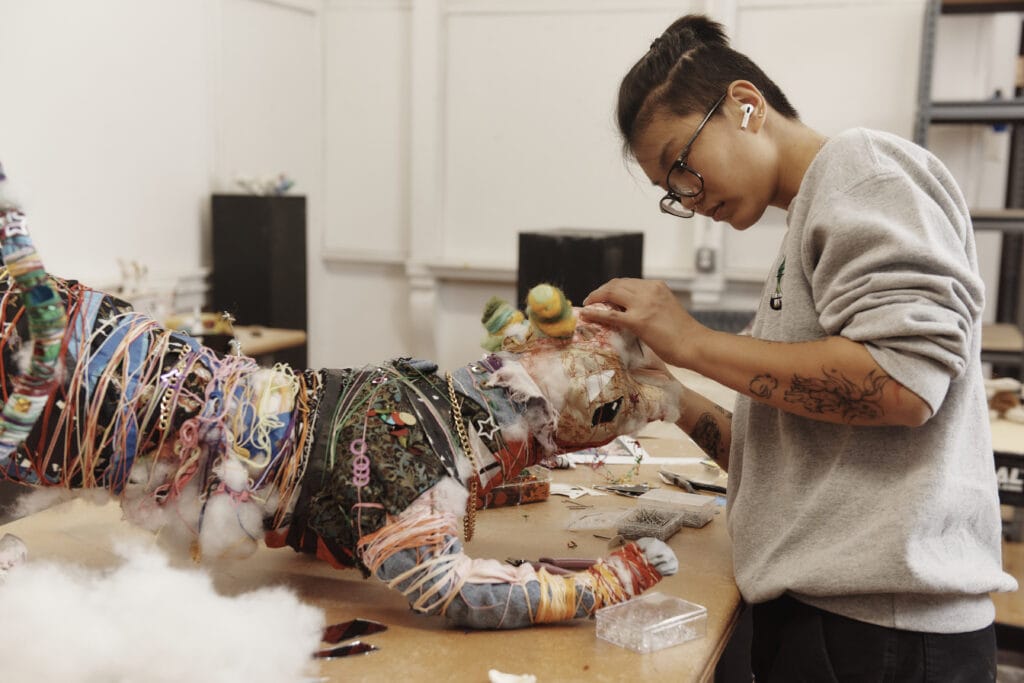For Employers

Massachusetts College of Art and Design (MassArt) cultivates skilled artists, designers, and educators who bring critical thinking and creative solutions to diverse fields.
Through our Career Development office, we connect employers with exceptional talent eager to contribute meaningfully to creative and professional environments.
Recruit on MassArt’s Handshake Portal
Post a Job or Internship
MassArt’s employment portal, Handshake, is free for employers to post paid job opportunities and credit-bearing internships for MassArt students and alumni. Once approved, listings are shared directly with MassArt students and alumni. Please note our Posting Policy for eligible opportunities.
- Create a company profile on Handshake – Sign up here
- Log in if you already have an account
- Post your job or internship
- Add Massachusetts College of Art and Design to the list of schools you want your job posting shared with
- Once approved, it will be shared with our student and alumni networks
For questions, contact us at careerdevelopment@massart.edu.
The MassArt Handshake site is free for employers to post paid job opportunities and credit-bearing internships for MassArt students and alumni.
We do not accept volunteer opportunities, contests & competitions, bartered jobs, commission-only jobs, or low/no/deferred compensation jobs.
Internship postings that do not clearly meet MassArt’s academic internship program guidelines for credit will not be approved.
Postings will be reviewed to ensure information is complete and it meets our posting policy. Postings that do not meet the policy are subject to removal without notice.
Questions? Email careerdevelopment@massart.edu.
To create a free Handshake account as an Employer, you can register for a free account with you email address.
If you already have an account, you may login here.
Our Internship Program
MassArt partners with employers to create valuable internship experiences that prepare students for careers in the Creative Economy. These internships allow students to apply their art and design skills in real-world settings, gain insights into potential career paths, build a professional network, and receive mentorship from industry professionals.
For employers, this is an opportunity to mentor emerging talent and evaluate future candidates. MassArt’s structured internship program provides academic credit and equips students with hands-on experience and business skills essential for their future careers.
Recruiting Opportunity
Join our Annual Internship and Job Fair
Held each February on Handshake, this virtual job fair connects employers with current students, graduating seniors, and recent alumni in order to find applicants that fit the needs of your team and organization.
- Share information about internships for current students as well as entry level jobs for seniors and recent graduates.
- Participate in group information sessions and one-on-one discussions to answer questions, offer application advice, and forge connections with potential hires.
Please contact Rebekah Wright at rwright@massart.edu for more details about participating as an employer.
Portfolio Reviews
Host on-campus or virtual portfolio reviews to provide feedback and connect with potential hires.
Are you interested in offering an on-campus or virtual portfolio review for current MassArt students or graduating seniors? Events like this are organized on a case-by-case basis during the academic year. Reach out to us to discuss what this might look like for you.
Contact us at careerdevelopment@massart.edu for assistance.
Share a Freelance Opportunity
Are you interested in recruiting MassArt students and alumni for a freelance art & design opportunity?
For one-time or short-term projects, contact us at careerdevelopment@massart.edu to promote freelance roles to students and alumni.














